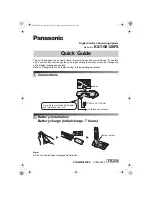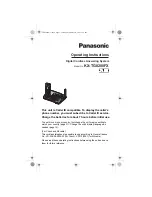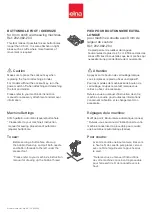
Trial sewing, Thread tension
Sewing test
After threading make a trail run. Always use a double layer of
fabric to properly check the stitch formation and thread ten-
sion.
• Switch the machine on (“I”).
• Set all tensions to 4.
• Stitch length, differential, cutting width (see adjustment &
settings).
• Lower the upper knife.
• Lower the presser foot.
• Raise the front of the presser foot slightly with your thumb
and position the fabric under the foot just up to the knife.
Sew.
• At the end of the seam continue sewing a 8cm (3”) long
thread chain (A). Cut threads.
• When using thread such as cordonet or similar, pull out the
thread chain (B) carefully by hand as it might catch in the
stitch plate.
Check your trial run
1. Upper looper thread (blue).
2. Lower looper thread (red).
3. Right- hand needle thread (green).
4. Left- hand needle thread (yellow).
Perfect stitch formation is when both looper threads meet at
the fabric edge. The needle threads form straight stitches for
a stretchy and durable seam.
18














































